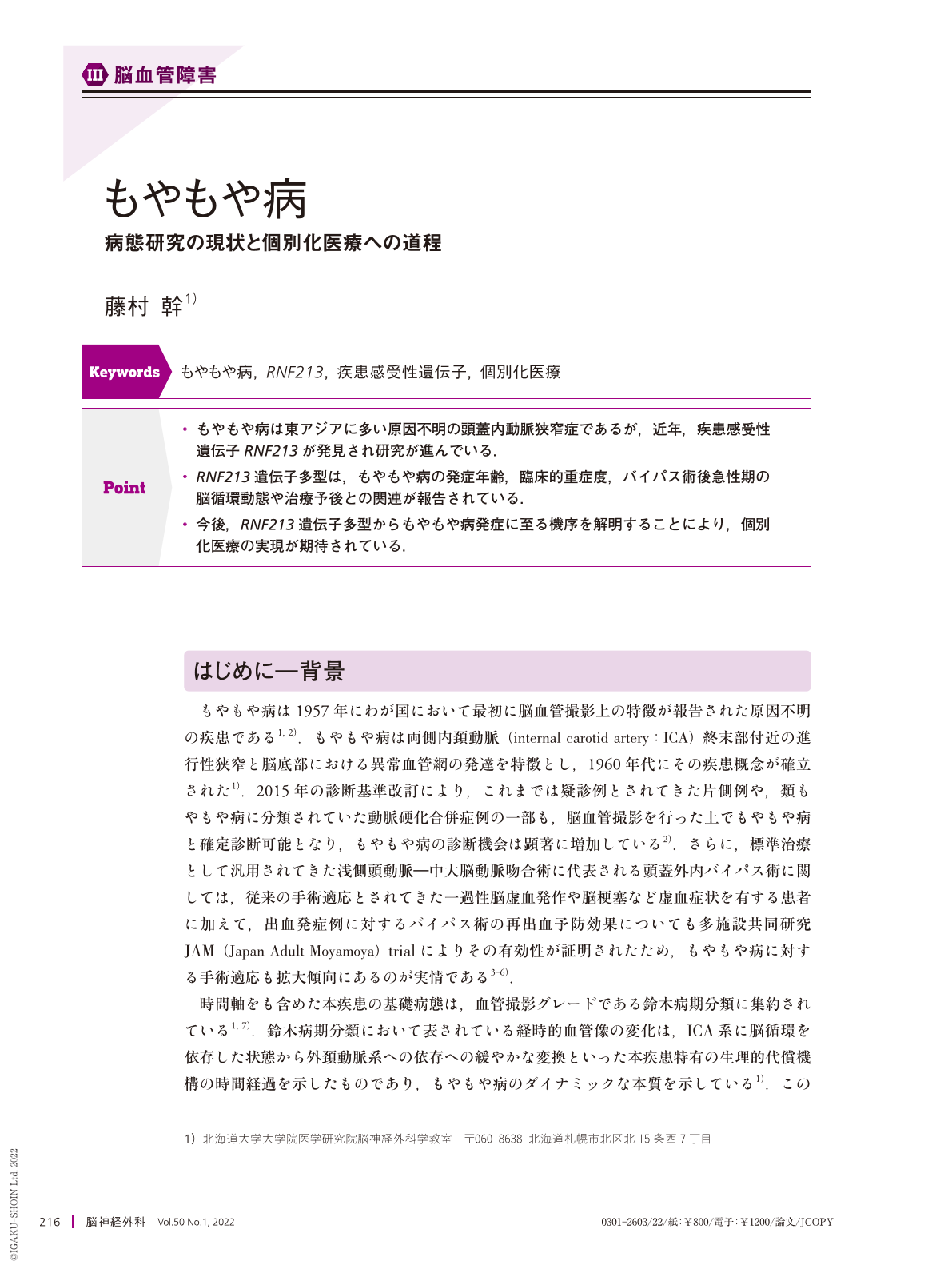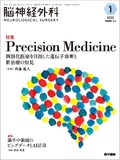Japanese
English
- 有料閲覧
- Abstract 文献概要
- 1ページ目 Look Inside
- 参考文献 Reference
Point
・もやもや病は東アジアに多い原因不明の頭蓋内動脈狭窄症であるが,近年,疾患感受性遺伝子RNF213が発見され研究が進んでいる.
・RNF213遺伝子多型は,もやもや病の発症年齢,臨床的重症度,バイパス術後急性期の脳循環動態や治療予後との関連が報告されている.
・今後,RNF213遺伝子多型からもやもや病発症に至る機序を解明することにより,個別化医療の実現が期待されている.
Moyamoya disease(MMD)is a chronic, occlusive cerebrovascular disease characterized by progressive stenosis at the internal carotid artery terminus and abnormal vascular network formation at the base of the brain. Although its etiology is still unknown, recent genetic analysis identified RNF213 as an important susceptibility gene for MMD. A single nucleotide polymorphism in c.14576G>A(p.R4810K)in RNF213 was identified in 80% of patients with MMD in Japan, and RNF213 mutation was found to be significantly associated with earlier disease onset and more severe disease. More recent studies identified a significant correlation between RNF213 mutation and the intrinsic cerebral hemodynamics, such as local cerebral hyperperfusion after direct revascularization surgery for patients with MMD. These results indicate that RNF213 could be a useful biomarker for the prediction of the clinical course of MMD and/or the outcomes of revascularization surgery. Further investigation is warranted to clarify the exact mechanism by which RNF213 mutation leads to the steno-occlusive changes at the internal carotid artery terminus, development of abnormal vascular networks at the base of the brain, and ultimate cerebrovascular events in patients with MMD. This information could also be helpful in the implementation of precision medicine by providing critical information regarding the molecular target candidates in the management of MMD.

Copyright © 2022, Igaku-Shoin Ltd. All rights reserved.


